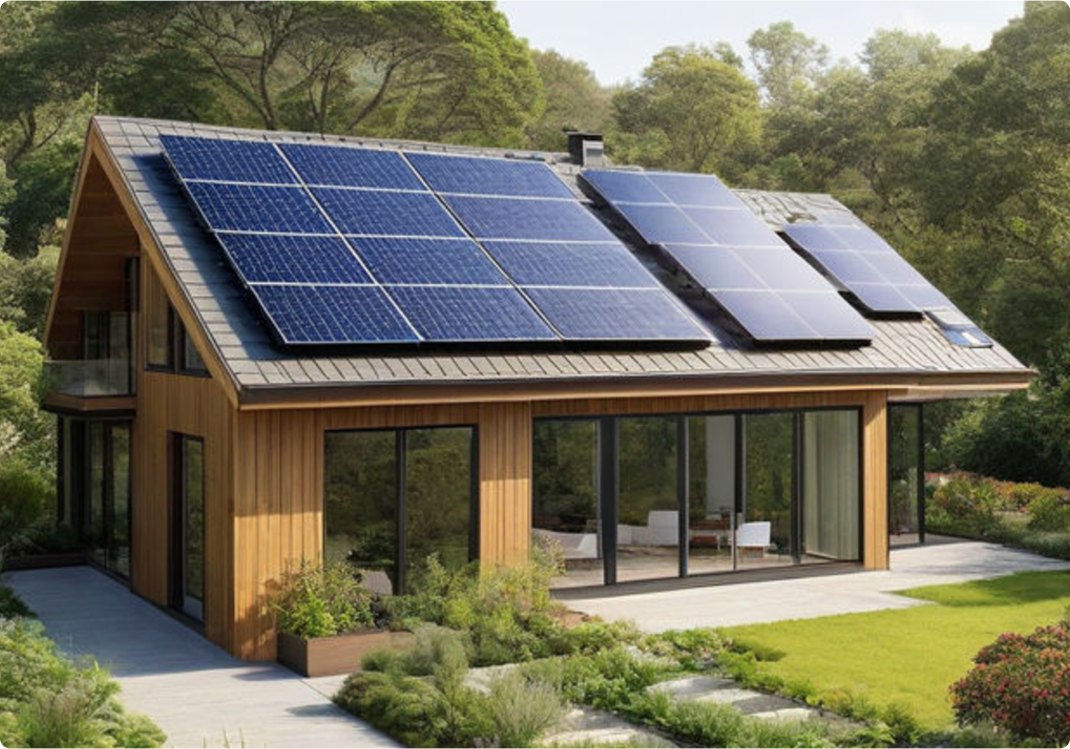5 alternative home heating ideas

There are lots of ways to heat a house. Including some you may never have considered. Let’s explore a few alternative heating solutions.


There are lots of ways to heat a house. Including some you may never have considered. Let’s explore a few alternative heating solutions.
Heating your home in winter can be a balancing act between being comfortable and busting your budget—especially if your heating system isn’t the most efficient. If you’re building or remodeling a home and you’re curious about whether another heating method might work better for you, we have some ideas about alternative heat sources for your home that use less energy—and cost less money.
If you think solar heating is only for green homes with big budgets, think again. Solar heating systems are fast becoming more popular—and more affordable. In fact, according to the Solar Energy Industries Association®, your return on investment for installing a solar system can be as little as three to six years, making it one of the more cost-effective forms of alternative heating.
Solar heating and cooling systems capture thermal energy from the sun instead of tapping electricity, oil or natural gas. Most systems consist of a solar collector, insulated piping, and a hot water storage tank. Solar collector panels are installed on the home’s exterior, usually on a wall with southern exposure.
Because solar systems are a form of renewable energy that help decrease dependency on fossil fuels and related price increases, and because they reduce pollution, they’re considered environmentally friendly. That’s why some states offer tax incentives for installing solar energy systems. And one reason solar is one of the smarter ways to heat a house.
Using the temperature of the earth, which remains at fairly constant just a few feet below the surface, geothermal heat pumps exchange heat with the earth instead of using outside air temperature. Although installing a geothermal system can cost a lot more than traditional air-source systems, this process lets you save energy and heating costs, even though
Compared to traditional air-source heat pumps, geothermal heat pumps are quieter, don’t depend on the temperature of outside air, require little maintenance and have a long lifespan. It’s definitely worth it to find out more about geothermal heat.
Thinking about coverage?
Security for your home. Protection for your budget.
The sun and the earth aren’t the only alternative home heating options. Energy-efficient and comfortable, radiant floor heating is among home builders’ favorite heating methods today. In-floor heating has its pros and cons but many homeowners like it because most of the equipment is installed beneath the floor (or in wall or ceiling panels for other types of radiant systems), so there aren’t any registers or radiators to interfere with furniture or traffic flow.
One reason radiant heating is more efficient than some other options is because it doesn’t lose heat through ductwork. It’s also less likely to spread allergens than forced air systems, and it doesn’t make much noise.
You might think you can only install a radiant heating system when you’re building a house. But there are actually innovations that make it possible to retrofit radiant heat systems for an existing home.
Electric radiant systems use cables, while hydronic radiant systems use hot water inside tubing. Programmable thermostats and solar panels can be used with some radiant heating systems.
If temperatures don’t fall below freezing all that often where you live, a hybrid heating system may be a cost-effective alternative heating option. Hybrid systems primarily use electricity but have a secondary fuel source, often natural gas, that switches on during high-demand periods. Most hybrid systems use an outdoor sensor and thermostat to activate the backup source when temperatures fall. Since natural gas is generally cheaper than electricity, hybrid systems can be less expensive to operate than all-electric systems. The bottom line: a hybrid heat system may be a good solution for your home.
No discussion about alternative home heating is complete without mentioning the wood stove. On top of just being a cozy way to keep warm, a wood stove can be anything from an added heat source to a way to heat your entire home. Wood is not only renewable, it’s usually less expensive (especially if you have lots of tress on your property)than gas, oil or electricity. You can also add an insert to your existing fireplace to direct the heat into your home instead of up the chimney.
If you decide to install a wood stove, make sure you follow U.S. Environmental Protection Agency (EPA) regulations along with local building and fire codes.
American Home Shield offers heating system warranty coverage Our home warranty plans include ductwork coverage for a key component that often goes overlooked.
In addition to providing budget protection for covered breakdowns, an American Home Shield home warranty gives you access to our nationwide network of qualified repair professionals. That’s a valuable resource if your heating system fails and you need a trusted, local Pro. So look into some of the alternative home heating options to keep your house warm this winter. And protect your budget by checking out our pricing and plans.
Explore how a heating system protection plan makes sure you’re not left in the cold.

AHS assumes no responsibility, and specifically disclaims all liability, for your use of any and all information contained herein.
Have a plan for your home when things don't go according to plan
Shop Home Warranties